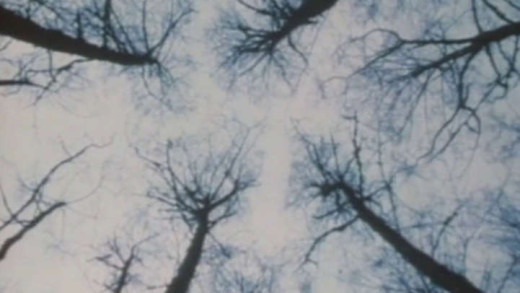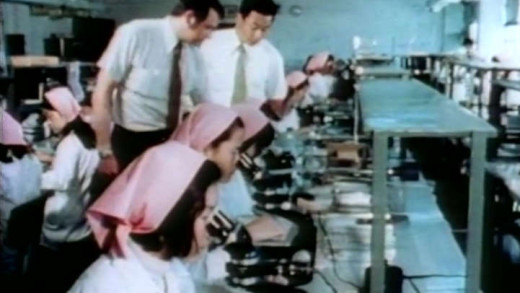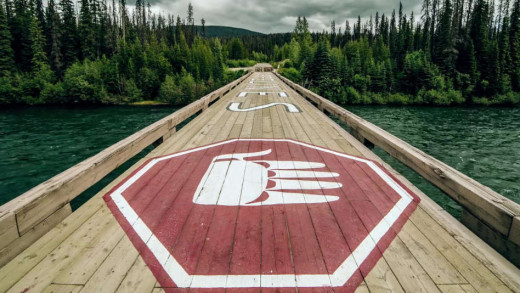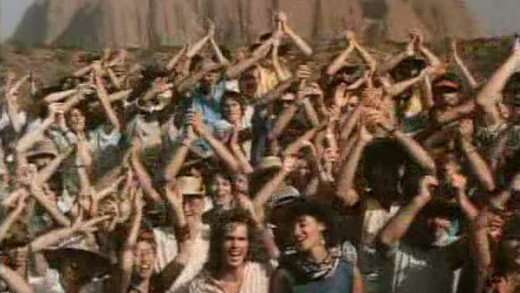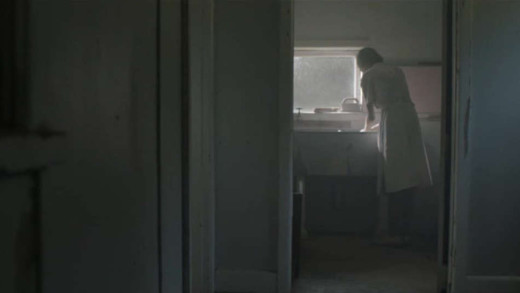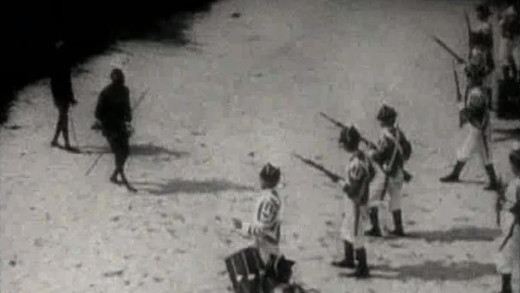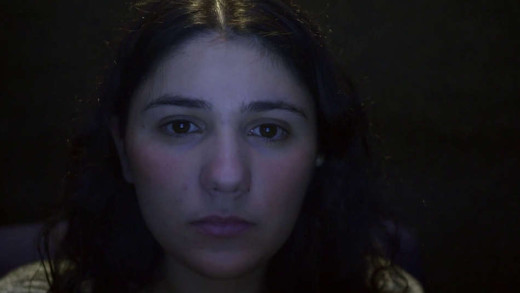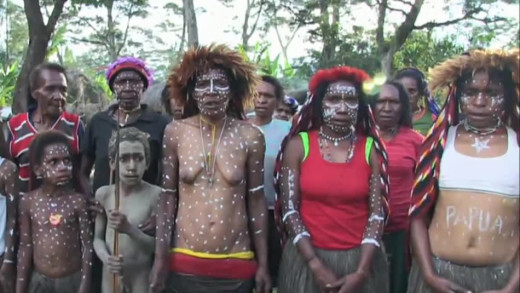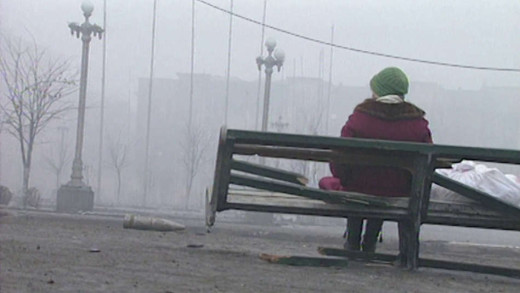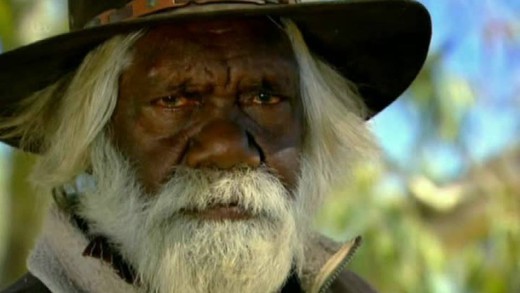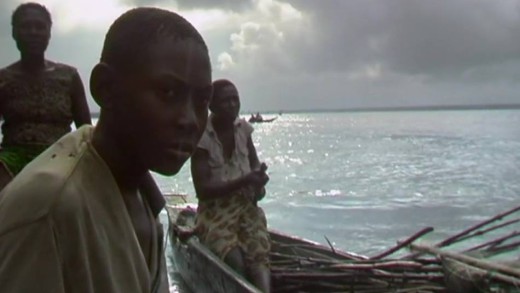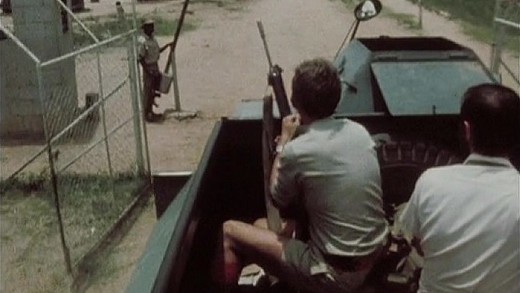Bones of the Forest traverses the topic of deforestation through the lens of colonisation. Told through the eyes of both native and non-native elders, current and former loggers, environmentalists and protesters, the film shows the experience of the sights and sounds of threatened forest, alongside the plight of loggers and their families. The voices at times coalesce--loggers made redundant due to over-foresting, align with environmental activists who wish to save the forest from the destruction of this culture.
Controlling Interest is one of the first documentary films to provide a critical analysis on the growth of multinational corporations, and their impacts on people and the environment. Upon its release, Controlling Interest quickly became a standard audio-visual text for those concerned about the growing impact of multinational corporations, examining how the ever-increasing concentration of money and power affects employment in the United States, shapes patterns of development across the world, and influences foreign policy. This is the film that helped kick-off the anti-globalisation movement. Remarkably candid interviews with business executives provide a rare glimpse of the reasoning behind corporate global strategy, and the never-ending search for resources, ever-cheaper labour, and the commodification of life. The film documents the impact of corporate decisions on people around the world, including how "freedom" has come increasingly to mean the freedom of global corporations to operate without restriction. Some of the case studies include Massachusetts' declining machine tool industry, Brazil's "economic miracle," and Chile before and after the 1973 coup.
Invasion is a short film about the Unist’ot’en camp, where Wetʼsuwetʼen First Nation peoples have been living on their traditional unceded territory since time immemorial, only to face repeated threats in the past decade by the Canadian government and corporations that are relentlessly pushing to install oil pipelines and other extractive industries on their land. Wetʼsuwetʼen feel they have a sacred duty to protect their land from harm and preserve it for future generations, and so formed the Unist’ot’en camp to resist the colonisers and their destructive ways. Located 1,200 km from Vancouver, the camp is on the shores of the Wedzin Kwah and mouth of Gosnell Creek, as a healing space for Indigenous people and settlers alike, and an active example of decolonisation and resistance.
In these three films, John Pilger and Alan Lowery return to Australia to celebrate the country’s bicentenary, interviewing an extraordinary range of Australians from diverse backgrounds, each of whose views are a long way from those of the treasured Aussie stereotypes...
Servant or Slave follows the lives of five Aboriginal women who were stolen from their families and forced into indentured labour to be domestic "servants" for white people during the late 1890s and into 1900s in Australia. With the government exercising complete control over their wages and livelihood, many thousands of Aboriginal children were condemned to a treadmill of abuse, battery, rape, and slavery, only to discover that even today they've had to fight for recognition, respect and reparation for their treatment in the past. This film recounts their experiences, as a portrait of courage, strength and the fortitude to pursue justice for the crimes committed against them.
The secret history of Australia is a historical conspiracy of silence. Written history has long applied selectivity to what it records, largely ignoring the shameful way that the Indigenous people were, and continue to be, treated...
The Viewing Booth recounts a unique encounter between a filmmaker and a viewer--exploring the way meaning is attributed to images in today's culture of the screen. In a lab-like location, Maia Levy, a young Jewish American woman, watches videos portraying life in the occupied West Bank, while verbalising her thoughts and feelings in real time. Maia is an enthusiastic supporter of Israel, and the images in the videos, depicting Palestinian life under Israeli military rule, contradict some of her most deep-seated beliefs. Empathy, anger, embarrassment, innate biases, and healthy curiosity all play out before our eyes, as we watch her watch the images created by the occupation. As Maia navigates and negotiates the images, which threaten her worldview, she also reflects on the way she sees them. Her candid and immediate reactions form a one-of-a-kind cinematic testimony to the psychology of the viewer, most especially in the digital era.
Goodbye Indonesia investigates one of the world's most forgotten conflicts--the West Papuan struggle for independence. When the Dutch decolonised their empire after the Second World War, they handed it all to the emergent country of Indonesia--all except the territory of West Papua, which forms one half of New Guinea, the second largest island on Earth. This remarkable landmass split neatly by colonial powers into West Papua and Papua New Guinea, is like few other places in the world...
Since the late 1980s, BBC news crews have filmed all across the Soviet Union and Russia, but only a tiny portion of their footage was ever used for news reports. The rest was left unseen on tapes in Moscow. Filmmaker Adam Curtis obtains these tapes and uses them to chronicle the collapse of the Soviet Union, the rise of capitalist Russia and its oligarchs, and the effects of this on Russian people of all levels of society, leading to the rise to power of Vladimir Putin, and today's invasions of Ukraine. The films take you from inside the Kremlin, to the frozen mining cities in the Arctic circle, to tiny villages of the vast steppes of Russia, and the strange wars fought in the mountains and forests of the Caucasus.
Utopia is both an epic portrayal of the oldest continuous human culture on the planet--indigenous Australia--and an investigation into a suppressed colonial past and rapacious present. One of the world's best kept secrets is revealed against the great Australian 'mining boom,' showing how the country's racially divided past and current-day media collusion play their parts in a system that is apartheid in all but name. The film examines the exploitation of the Aboriginal population, both as a people and of the land they have lived on for centuries, and how so many institutions have profited while people continue to suffer. The injustice stretches across countless generations and stories. Utopia reveals this universal story of power and resistance, driven by old imperatives, in a media age of saturation which is profoundly silent and complicit; a call to continue resistance.
Shifty is a series of films that traverse the past 40 years in Britain, showing how the shift of political power to finance and hyper-individualism came together in powerful ways, to undermine one of the fundamental structures of mass democracy--the shared idea of what is real. As that fell apart, with it went the language and the ideas that people had turned to for the last 150 years to make sense of the world they lived in. As a result, life in Britain and the current and former colonies of its empire, has become strange--a hazy dream-like flux, where distrust in politicians keeps growing, and the political class seems to have lost control. Through archive footage, news reels, and on-screen-text in video essay format, Shifty documents the shapes of how this happened, using the vast ranges of footage to evoke what if felt like to live through an epic transformation during the 1980s.
Sweet Crude is the story of how large oil corporations such as Shell and Chevron have absolutely decimated the Niger Delta, but the people are fighting back. The film shows the human and environmental consequences of 50 years of oil extraction against an insurgency of people who, in the three years after the filmmakers met them as college students, became the young of the Movement for the Emancipation of the Niger Delta (MEND). The movement is born after series of non-violent protests, and what the corporations and colonisers don't understand is that these people will fight for their land and emancipation until the end. Sweet Crude is their story of survival and armed resistance against corrupt governments and rapacious corporate power, amongst a complicit and collusive mainstream media.
Concerning Violence narrates the events of African nationalist and independence movements in the 1960s and 1970s which challenged colonial and white minority rule. The film is an archive-driven video essay based on author Frantz Fanon's 'The Wretched of the Earth,' covering the most daring moments in the struggle for liberation in the so-called 'Third World,' as well as an exploration into the mechanisms of decolonisation. Fanon's text, which was banned soon after publication more than 50 years ago, remains a major relevant tool for understanding and illuminating the neo-colonialism still happening today, as well as the reactions against it.
Adrift is a short film that explores the phenomenon of space junk, where human-made objects launched into space and are now defunct orbit the Earth literally as garbage. The film makes visible some of the immediate impacts and dangers of the technological escalation of this culture, where old satellites, spent rocket stages, and other items orbit the Earth, only to collide with one another at high velocities, generating smaller fragments that collide with other items, and so on. The end point is a cascading complex of junk that engulfs the entire space around the Earth. Adrift aims to make this phenomenon visible, putting a big question mark against the claims made by many futurists and technologists that future space colonisation would even be possible, if only it were a tenable or sensible idea in the first place...
In the United States, during the first year of Donald Trump's presidency, the rise of a white supremacist movement has returned, as political energy is injected into neo-confederate, neo-fascist, neo-Nazi, Klansmen, and various right-wing militia groups. More broadly, civil rights organisations such as Antifa (Anti-Fascist) and social justice groups are fighting back. Alt-Right: Age of Rage follows the development the Alt-Right, by following social justice activist Daryle Lamont Jenkins, and renowned Alt-Right leader Richard Spencer. Each movement is juxtaposed, as tensions boil over to the horrific events in Charlottesville where a young woman is killed, and 30 others injured by a self-identified neo-Nazi. Through these narratives and events, the film surveys the workings of Free Speech, deplatforming by the Left, the role of the Internet, and the consequences of fractured politics playing out in the real physical world.
